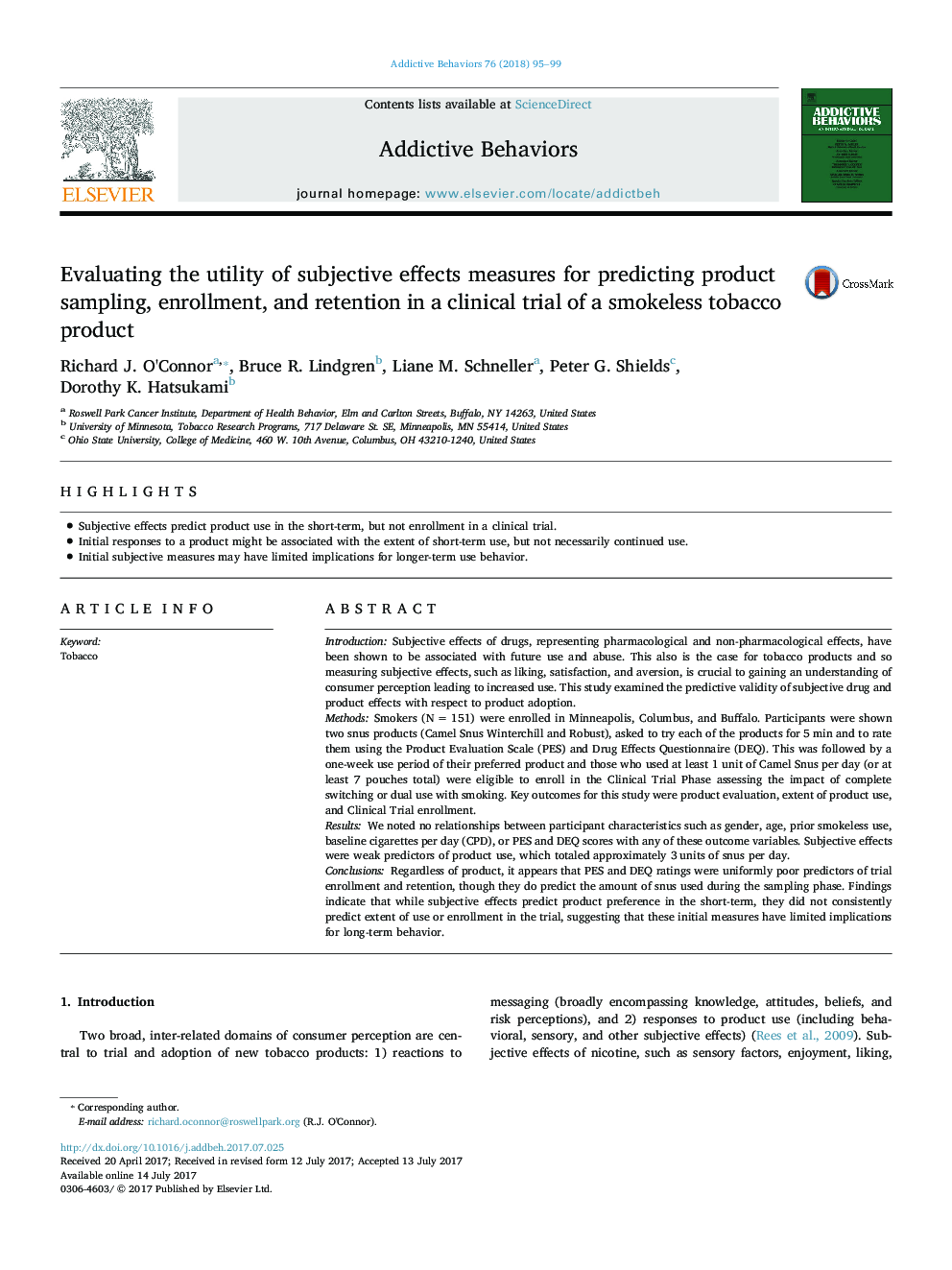| کد مقاله | کد نشریه | سال انتشار | مقاله انگلیسی | نسخه تمام متن |
|---|---|---|---|---|
| 5037613 | 1472495 | 2018 | 5 صفحه PDF | دانلود رایگان |
- Subjective effects predict product use in the short-term, but not enrollment in a clinical trial.
- Initial responses to a product might be associated with the extent of short-term use, but not necessarily continued use.
- Initial subjective measures may have limited implications for longer-term use behavior.
IntroductionSubjective effects of drugs, representing pharmacological and non-pharmacological effects, have been shown to be associated with future use and abuse. This also is the case for tobacco products and so measuring subjective effects, such as liking, satisfaction, and aversion, is crucial to gaining an understanding of consumer perception leading to increased use. This study examined the predictive validity of subjective drug and product effects with respect to product adoption.MethodsSmokers (NÂ =Â 151) were enrolled in Minneapolis, Columbus, and Buffalo. Participants were shown two snus products (Camel Snus Winterchill and Robust), asked to try each of the products for 5Â min and to rate them using the Product Evaluation Scale (PES) and Drug Effects Questionnaire (DEQ). This was followed by a one-week use period of their preferred product and those who used at least 1 unit of Camel Snus per day (or at least 7 pouches total) were eligible to enroll in the Clinical Trial Phase assessing the impact of complete switching or dual use with smoking. Key outcomes for this study were product evaluation, extent of product use, and Clinical Trial enrollment.ResultsWe noted no relationships between participant characteristics such as gender, age, prior smokeless use, baseline cigarettes per day (CPD), or PES and DEQ scores with any of these outcome variables. Subjective effects were weak predictors of product use, which totaled approximately 3Â units of snus per day.ConclusionsRegardless of product, it appears that PES and DEQ ratings were uniformly poor predictors of trial enrollment and retention, though they do predict the amount of snus used during the sampling phase. Findings indicate that while subjective effects predict product preference in the short-term, they did not consistently predict extent of use or enrollment in the trial, suggesting that these initial measures have limited implications for long-term behavior.
Journal: Addictive Behaviors - Volume 76, January 2018, Pages 95-99
